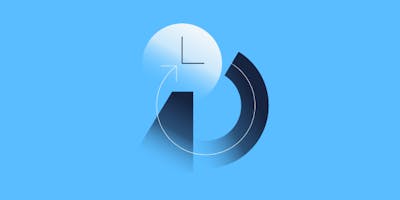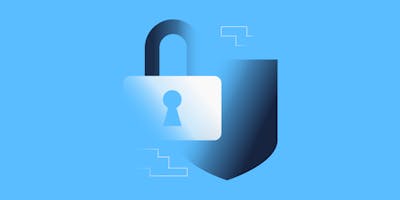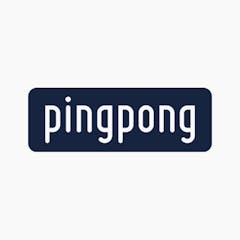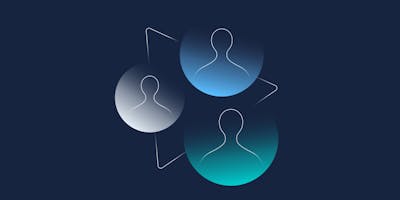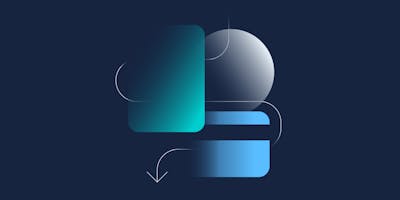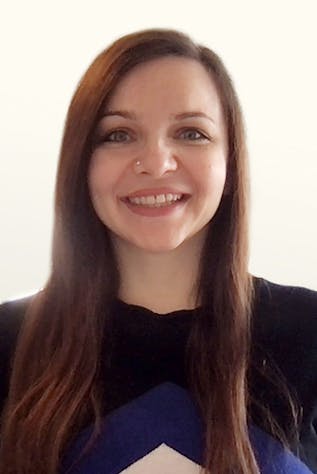.tech Podcast - Landing your next remote job
Blogs· 4min February 15, 2023
Alexandra Forsberg is a Talent Acquisition Lead at Form3. She joins us to share tips for landing your next remote job. Alexandra covers all aspects of the interviewing process including where to find remote opportunities, how to stand out to hiring managers and how to prepare for a remote interview. Finally, she shares Form3's approach to the interview process.
Alexandra Forsberg is a Talent Acquisition Lead at Form3. Alexandra co-leads Form3's Engineering hiring across the UK, Europe, Argentina and Canada. She is currently leading a team of experienced Talent partners. Alexandra joined the business in 2018 and has had the privilege of growing Form3's Product, Engineering and Security departments. She has a background in agency recruitment, but is passionate about talent acquisition. She has shared her top interviewing tips in her article "How to Land Your Dream Remote Software Engineer Job".
When is a good time to look for a job?
On average, engineers look for a new job every 2 or 3 years. Alexandra begins by discussing the timing of these job searches. The short answer is to look for a job whenever you're ready, but it can be difficult to predict across locations and industries. Alexandra recommends to always be prepared by:
- Updating your CV and LinkedIn profile.
- Practicing your interviewing skills.
- Keeping an eye on the job market.
A lot of companies do hire at the start of a new financial year or quarter, so that is something to keep in mind as well. In the UK, the financial year starts in April, but you should check when it runs in the locations you're interested in.
Where can we find remote opportunities?
Alexandra recommends a few remote job boards to use in your search for a new role, which you can easily find using Google. The top boards she recommends are:
You can also check Slack channels related to the languages you're interested in. For example, if you're interested in Go opportunities you can check the Gophers Slack.
Are there any red flags we should watch out for?
Once you find an opportunity that you're interested in, Alexandra shares some red flags or concerns you should watch out for. Make sure that you ask the talent recruiter or hiring manager questions about:
- Their remote working policy, ensuring that the working arrangement is a good fit for you.
- Where most of the colleagues are based and how the company keeps colleagues engaged in the remote world.
- How do teams collaborate and what the working hours are.
The red flags would be in the answers to those questions, which could be vague or unsatisfactory. It's important to ask these questions early on to ensure that you don't waste your time on an opportunity that isn't a good fit. Alexandra underlines that in the remote world, the company culture and working practices are extremely important, so ensure that you receive satisfactory answers for your questions.
How much salary should we ask for?
In the remote world, salary banding becomes tricky. Alexandra shares that there is no set rule in a how a company sets salaries for remote roles. Typically, they set salaries in two ways:
- By employee location, meaning where you are based.
- By company location, meaning where the company is based.
In either case, Alexandra recommends to research before salary negotiation. You can use Glassdoor or PayScale to get a good idea what your salary should be for the location and job you are applying for. You should be confident in what you're worth and don't be afraid to ask for the salary that you think you should receive. Once you know what your salary expectations are, you should communicate them clearly and early in the process. This will help you avoid disappointment and wasted efforts during the interview process.
Remember to consider all aspects of your benefits package, not just your salary amount. Companies stay competitive by adjust benefits, as well as pay. Alexandra shares the LinkedIn Global Talent trends survey which concluded that remote working was the number one benefit that candidates look for from their employer, trumping basic salary.
What can engineers do to stand out during the interview process?
Alexandra has vast experience with this and can share some top tips:
- Include the most important keywords: sprinkle methodologies and technologies that you have experience using, which will make it easy to match your profile against the job specification.
- Make it easy to read: make sure that your CV is well structured and that the most important information is available on the first page. Keep your text short and concise, covering the most important points only.
- Highlight your accomplishments: focus on sharing the impact you've made in your previous roles. CVs are no time to be modest, so make sure that you shout about your biggest wins and achievements.
- Tailor it to the job: make sure that your CV highlights relevant keywords according to what the the job spec looks for. This will allow you to mention the relevant keywords and highlight as many experiences that are relevant to the job as possible.
- Create a strong LinkedIn profile: recruiters will look you up on LinkedIn, even if you don't mention it on your CV. Keep it updated, just like your CV
- Mention where you're based: add your location and contact details to your CV, even if you're applying for a remote role.
In the case that you want to transition to a role that doesn't match your previous experience, make sure that you connect the dots for the recruiters by highlighting your transferable skills. For example, if you are looking to transition from a Java role to a Go role you could highlight your experience working with microservice architectures. Tools and technologies can be taught and learned, so make your transferable skills obvious to the recruitment team.
How can we prepare for a remote interview?
Alexandra shares that the preparation for a remote interview is no different from the onsite interview. You only have one chance to make a great first impression. You should definitely prepare and think through how you will present yourself and your experience.
In practical terms, you should also consider the logistics. Make sure you are in a quiet place, with reliable WiFi and that your equipment is working. You can also double check the video link and ensure that you can dial into the interview. Finally, during the interview, make sure you highlight your remote working experience and how you keep engaged.
As with everything we do, practice will help, especially if you are a nervous interviewee. You can practice with a friend, record and watch it back to see how you're coming across. However, you should always be yourself in interviews.
If you're serious about interviewing and have many scheduled calls, you can create yourself a Calendly account to keep track of your scheduling and ensure you are pacing yourself. You can also create a spreadsheet for tracking your applications.
What is Form3's approach to the interview process?
Finally, Alexandra shares what Form3's recruitment approach is. The interview process is designed to be fair, transparent and accesible. The goal is to allow engineers from any background to apply for a role. Each stage is aimed to replicate the day to day problems that our engineers solve, so the interview does not include algorithmic style questions.
The Form3 interview process consists of three stages:
- A call with the Talent team: this step is an important part of the process that aims to evaluate a candidate's technical skills, cultural fit and communication style. It gives us an indication of a candidate's strengths, weaknesses and enthusiasm for the role. It also gives the candidate the opportunity to ask questions and learn more about Form3.
- Technical exercise: this step is a simplified version of what engineers at Form3 work on. The solution provided by the candidate is evaluated by the engineering team for readability, reliability and maintainability. There are no time constraints for the exercise, giving the candidates the space to deliver something they are proud of.
- Technical interview: this is a 90-minute long interview divided into three parts run by members of the engineering and security team. The substages are: code review of the technical exercise, technical knowledge assessment and a debugging exercise.
The interview process does not include a live coding task in order make it easier for people to fit the interview process in their busy lives.
Written by
Adelina is a polyglot engineer and developer relations professional, with a decade of technical experience at multiple startups in London. She started her career as a Java backend engineer, converted later to Go, and then transitioned to a full-time developer relations role. She has published multiple online courses about Go on the LinkedIn Learning platform, helping thousands of developers up-skill with Go. She has a passion for public speaking, having presented on cloud architectures at major European conferences. Adelina holds an MSc. Mathematical Modelling and Computing degree.
Further resources
Blogs · 10 min
Dangling Danger: Route53's Flawed Dangling NS Record Protection
A subdomain takeover is a class of attack in which an adversary is able to serve unauthorized content from victim's domain name. It can be used for phishing, supply chain compromise, and other forms of attacks which rely on deception. You might've heard about CNAME based or NS based subdomain takeovers.
October 27, 2023
Blogs · 4 min
Applying the Five Ws to Incident Management
In this blogpost, David introduces us to the five W's of information gathering - Who? What? When? Where? Why? Answering the five Ws helps Incident Managers get a deeper understanding of the cause and impact of incidents, not just their remedy, leading to more robust solutions. Fixing the cause of an outage is only just the beginning and the five Ws pave the way for team collaboration during investigations.
July 26, 2023
Blogs · 4 min
.tech Podcast - All about conference speaking
Patrycja, Artur and Marcin are engineers at Form3 and some of our most accomplished speakers. They join us to discuss their motivations for taking up the challenge of becoming conference speakers, tell us how to find events to speak at and share their best advice for preparing engaging talks. They offer advice for new and experienced speakers alike.
July 19, 2023


